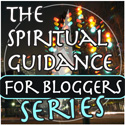
Michael Hyatt just wrote a blog post about why he blogs…what he has learned 1,000 posts later.
It got me to thinking that this is a great question to reflect on. For all of us. How long have you blogged? Why did you start? Has that changed over time? What are some things you’ve learned?
I’ll try to tackle that too:
In my pre-blogging days I sent out weekly emails to a list of family and friends called ethoughts (emailed thoughts). They were like little bits of inspiration in article form, and I grew a fervent and modest following.
Then Xanga (one of the first blogging communities) caught my eye, and the birth of blogging began for me. Back then, social media didn’t exist, so getting the word out had its challenges.
By 2006, I went to Blogger because of the flexible style, and I branched several blogs off as I tried to keep my personal thoughts and observations apart from spiritual and ministry style posts. The “emerging Christian conversation” was in its meteoric rise, and I wanted to dialogue and connect with other Christians asking tough questions that pat answers couldn’t solve.
From there I started a website; it also contained all my thoughts articles which numbered in the hundreds. My website didn’t connect seamlessly with the blog. That changed when I went to wordpress, and got my own domain name. It was then I re-grouped things into one area and web presence. Once I harnessed social media to promote posts and interact with other things really took off.
I’m not sure how many posts I’ve done, but writing 1 to 5 times per week since 2005 means I’ve pounded out many many ideas. I’d say thousands. The why of my blogging has changed. Maybe evolved.
It started as a way to share a message. Then, as I wanted to get a book published, it provided a platform for that to build an audience. My first manuscript got me noticed and signed by a well-known agent, but also did the impossible: It died not once but twice in the final round of the “pub board meeting”. I think everyone but the accountants wanted to print it.
When that failed, I had to rethink why I was blogging. I got more creative, and posts got more amusing, as well as covered deep and serious topics. So much has changed in publishing that I’ve wondered if I’d be better off publishing my own ebook. For me, blogging has distracted me from longer writing projects. (…more on that in another post…)
Here are a few things I’ve gleaned from blogging:
• Blogging can focus your talents and passions.
• Blogging can show you your faults and thoughtlessness (making room for growth).
• Blogging can connect you more deeply with others more than you might first assume.
• Blogging well is hard work of persistence.
• Blogging–for good or bad–can often reveal one’s inner life, like it or not.
Stuff I Do:
Now, I do blogging as more of a ministry. But, not a ministry in any traditional sense of the word. By using it as a tool, I try to make it help me be a better person, and encourage the same in others. It’s not just that of course; it’s many others things.
Stuff I Don’t:
I find that I’m not drawn to “Dear Diary” or “My random thoughts” or “rant” type blogs, unless there is an obvious personal (or universal) aspect; or it’s someone so interesting, that I can’t stay away. So, I find that I don’t write in that style on my own blog. I wonder if this will change?
The simplest way to put it is that I am a creative person. I would be creating even if no one was looking. Sometimes I do that with design, art, photography, cooking, but here, I do it mainly with words. They say writers write. I think so.
What style blogs do you steer clear of? What ones are you attracted to? What things have you learned along the way?
If you write a “why I blog” post this month, share the link!





